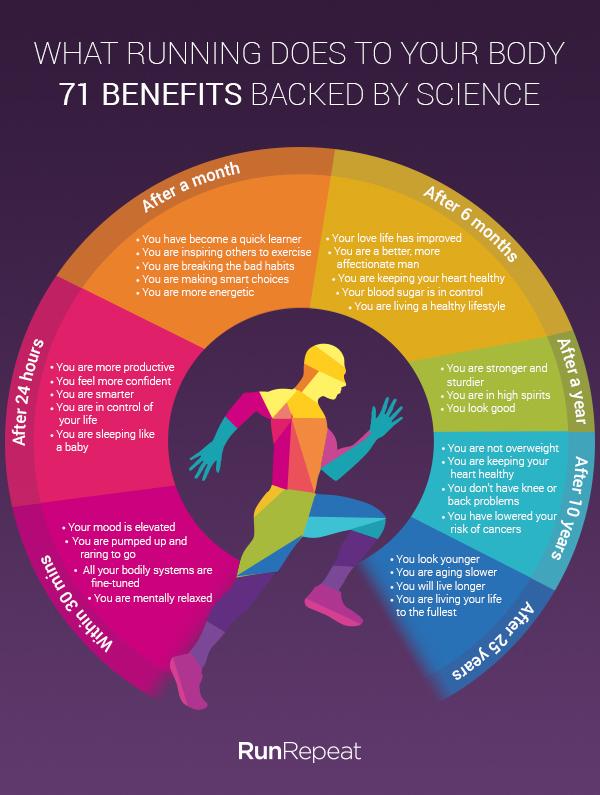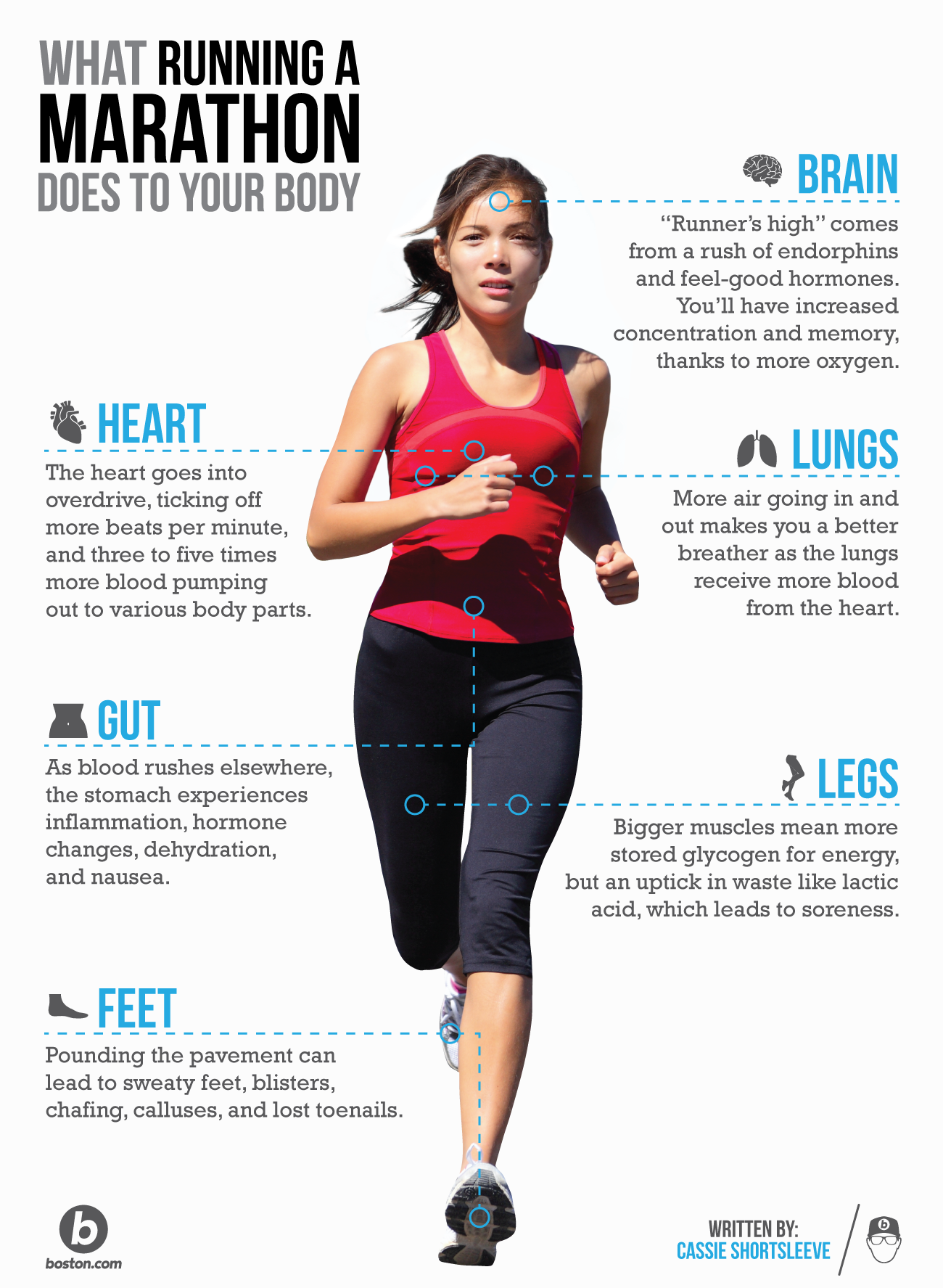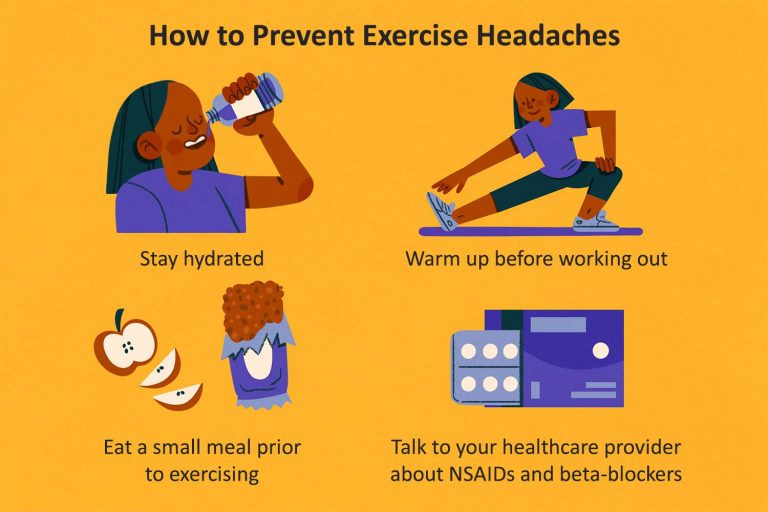What Running Does To Your Body
Running improves cardiovascular health and lung capacity while promoting weight loss and reducing stress levels. The physical activity strengthens muscles, boosts endurance, and increases energy levels.
Additionally, running helps to regulate blood sugar levels, improve mental clarity, and enhance overall well-being. Regular running can also lower the risk of chronic diseases, such as heart disease and diabetes. Furthermore, it provides a natural high due to the release of endorphins, known as the “runner’s high,” contributing to improved mood and mental health.
Embracing a running routine can lead to a healthier, happier lifestyle with numerous physical and mental benefits.

Credit: www.healthline.com
Increased Cardiovascular Health
Running has numerous benefits for the body, with one of the most significant being the impact it has on cardiovascular health. The effects of running on the heart, blood vessels, and lungs can lead to a stronger, more efficient cardiovascular system. Understanding the ways in which running enhances cardiovascular health can provide the motivation needed to lace up those running shoes and hit the pavement.
Lowered Blood Pressure
Regular running has been shown to significantly lower blood pressure, reducing the risk of heart disease and stroke. When you run, your heart becomes stronger, pumping blood more effectively and with less effort. This reduces the force on the arteries, leading to lower blood pressure levels. Lower blood pressure can also decrease the workload on the heart, helping to maintain overall cardiovascular health.
Improved Lung Function
Running activates the lungs, making them work harder to deliver oxygen to the muscles. This increased demand for oxygen strengthens the respiratory muscles and improves overall lung function. Enhanced lung capacity enables the body to take in more oxygen with each breath, improving the efficiency of the cardiovascular system and enhancing overall physical performance.

Credit: runrepeat.com
Weight Management
Weight management: Running plays a vital role in managing weight effectively. It helps in boosting metabolism and burning calories, making it an excellent exercise for weight control.
Boosts Metabolism
Running has a remarkable ability to boost metabolism. It keeps your metabolic rate elevated even after you finish running.
Burns Calories
One of the key benefits of running is its ability to burn calories efficiently. It helps in creating a calorie deficit, essential for weight loss and management.
Stronger Bones And Muscles
Increased Bone Density
Running can effectively increase bone density and lower the risk of osteoporosis.
Enhanced Muscle Tone
Regular running promotes enhanced muscle tone and strength throughout the body.
Improved Mental Well-being
Improved mental well-being is one of the remarkable benefits of running. The impact of running on mental health is profound, offering a range of positive effects that contribute to overall well-being.
Reduced Stress And Anxiety
Running is an excellent way to reduce stress and alleviate anxiety. When you run, your body releases endorphins, which are known as the body’s natural stress relievers. These powerful chemicals help to reduce feelings of tension and anxiety, promoting a sense of calm and relaxation.
Enhanced Mood
The effect of running on mood is extraordinary. Regular running can contribute to a more positive outlook on life. It can uplift your spirits and provide a sense of accomplishment, leading to a general improvement in mood and overall well-being.
Boosted Immune System
Running has a profound impact on the body by boosting the immune system, improving its overall functioning and preventing illnesses. It helps to strengthen the body’s defense mechanisms, making it more resilient and better equipped to fight off infections and diseases.
Increased Production Of Antibodies
The act of running regularly can have a remarkable impact on your immune system. One of the key benefits is an increase in the production of antibodies, which are specialized proteins that play a crucial role in protecting your body against harmful pathogens.
When you engage in running, your body recognizes the physical stress and responds by producing more antibodies. These antibodies act as a defense mechanism, identifying and neutralizing foreign invaders such as bacteria and viruses. By increasing their production, running helps to boost your body’s ability to fight off infections and stay healthy.
Regular running can also have a positive effect on the response of your immune system.
Strengthened Immune Response
Running strengthens your immune response by enhancing the functionality of various immune cells in your body. Studies have shown that individuals who engage in regular aerobic exercise, like running, have a more efficient immune system compared to those who lead sedentary lifestyles.
When you run, it increases blood circulation, allowing immune cells to move more freely throughout your body. This improved circulation ensures that immune cells can reach all the nooks and crannies, helping to identify and eliminate any potential threats.
Furthermore, running promotes the release of natural chemicals in your body, such as endorphins and adrenaline, which have been found to enhance immune cell activity. These substances not only improve your mood but also bolster your body’s defenses against pathogens.
In summary, running provides a double benefit to your immune system. It increases the production of antibodies, enabling your body to identify and neutralize harmful pathogens more effectively. Additionally, running strengthens your immune response, ensuring that immune cells are more efficient in their job of protecting your body. So lace up those running shoes and hit the pavement, as running truly does wonders for your immune system.

Credit: www.facebook.com
Frequently Asked Questions Of What Running Does To Your Body
How Does Running Affect Your Cardiovascular Health?
Running improves cardiovascular health by strengthening the heart, increasing blood flow, and reducing the risk of heart diseases.
Can Running Help With Weight Loss?
Yes, running burns calories, boosts metabolism, and helps in weight loss by shedding excess fat.
What Are The Benefits Of Running For Mental Health?
Running releases endorphins, improves mood, reduces stress, and provides a sense of accomplishment for better mental health.
Conclusion
Overall, running has a profound impact on the body. From improving cardiovascular health to strengthening muscles, the benefits are abundant. As you lace up your running shoes, remember that the positive effects extend beyond physical well-being. So, keep hitting the pavement and reap the rewards of a healthier and happier lifestyle.







